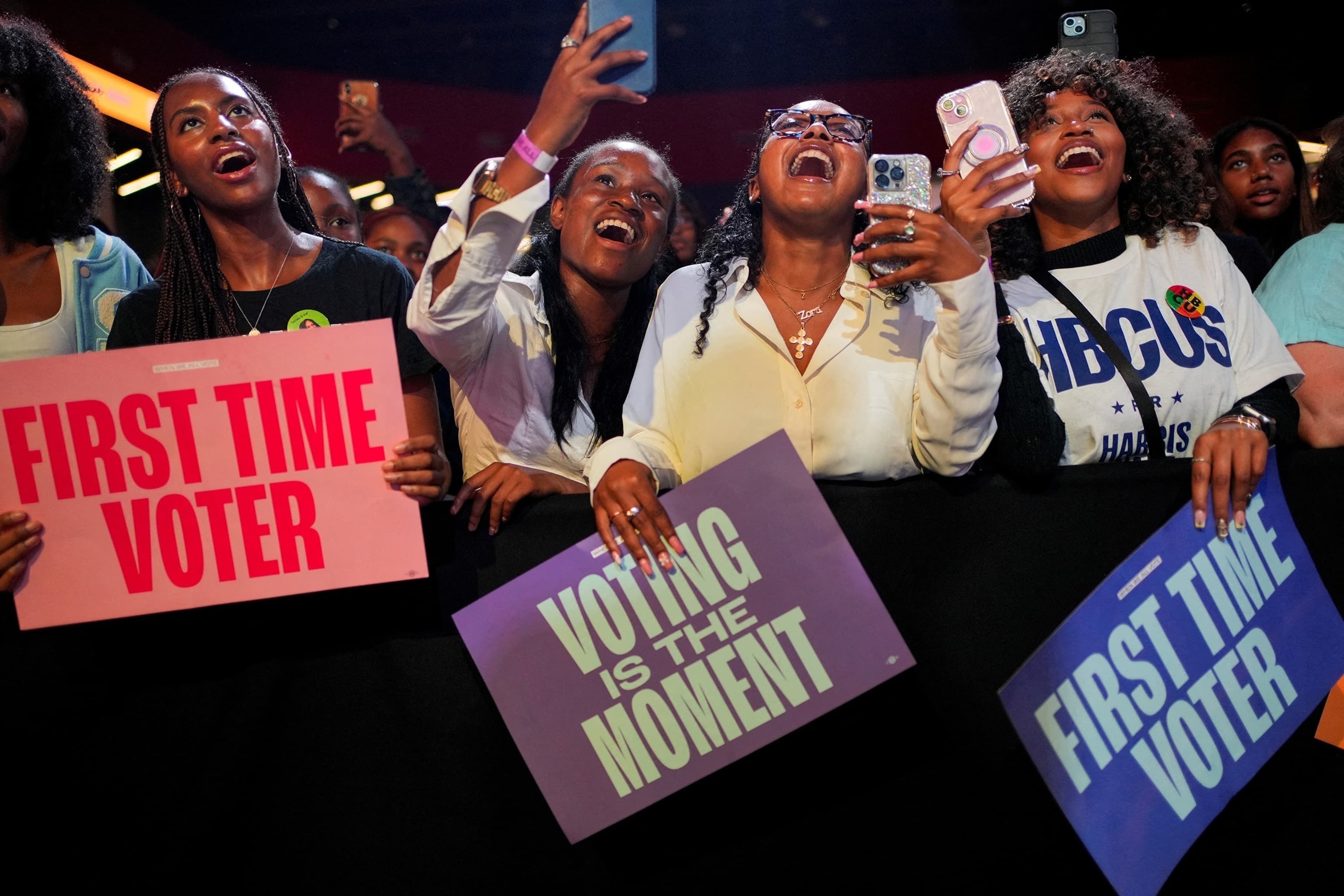Young Women Voters Show 58% Support for Democratic Candidate, Data Contrasts Social Media Claim of 70%

Recent electoral data from the 2024 election indicates that young women voters, aged 18-29, showed significant support for the Democratic candidate, Kamala Harris, with 58% backing her. This figure provides factual context to a social media post by user dweeb (dane garrus), who asserted, > "70% of these girls vote democrat." The tweet, posted on a personal account, highlights a common point of discussion regarding youth political alignment.
Analysis from CIRCLE (The Center for Information & Research on Civic Learning & Engagement) at Tufts University reveals a notable gender gap within the youth electorate. While young women favored Harris by a 17-point margin (58% to 41% over Donald Trump), young men showed a preference for Trump by a 14-point margin (56% to 42%). This divergence underscores distinct political trends emerging along gender lines among younger demographics.
Further research from the Brookings Institution corroborates this growing divide, noting that young women have become increasingly liberal over the past decade, embracing "anti-patriarchal" values. Conversely, young men have remained relatively consistent in their political leanings. This trend contributes to a significant political gender gap among the youngest voters in the United States.
Issue priorities also play a crucial role in shaping these voting patterns. Young women were more than twice as likely as young men to prioritize abortion as their number one concern, an issue that strongly correlated with support for Harris. In contrast, economic issues and immigration were more frequently cited as top concerns by young men, aligning with their increased support for Trump.
The disparity between the social media claim and the detailed polling data underscores the importance of consulting reputable research institutions for accurate information on voting behavior. While social media platforms serve as avenues for public commentary, verified studies offer a nuanced understanding of complex demographic shifts in the political landscape.